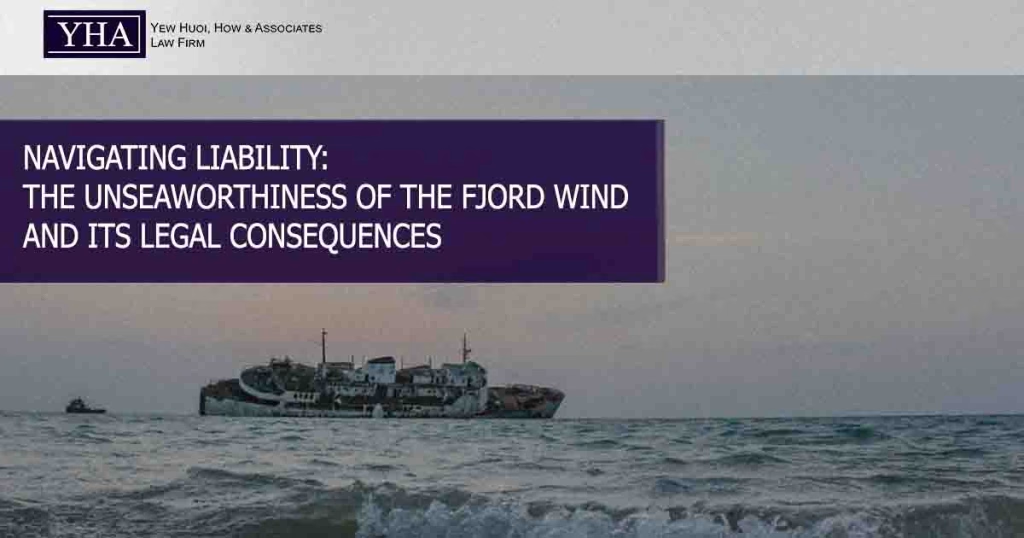Summary
The case of The Fjord Wind revolves around the legal responsibilities of shipowners regarding the seaworthiness of their vessel during a charter-party and their liability for damages caused by unseaworthiness.
Facts
- The plaintiffs, including Eridania S.p.A. and Ferruzzi Overseas S.A., entered into contracts for the carriage of soya beans from Argentina to Europe aboard the Fjord Wind, which was chartered by the defendants.
- On 30.06.1990, the vessel departed Rosario with a cargo of 27,535 tonnes of soya beans. Shortly after departure, the vessel experienced a main engine failure due to issues with the crankpin bearings, leading to a loss of propulsion and the need for transhipment of the cargo.
- The owners declared the voyage frustrated on 26.07.1990, as repairs were expected to take several months. The cargo was subsequently transhipped to a substitute vessel, incurring additional costs.
Legal Issues
- Whether the vessel was seaworthy at the time of departure.
- Whether the shipowners exercised due diligence to ensure the vessel’s seaworthiness.
- The implications of the vessel’s unseaworthiness for liability under the charter-party and bill of lading.
Court Findings
- The Court of Appeal upheld the trial court’s decision that the Fjord Wind was unseaworthy at the time of her departure due to known issues with the crankpin bearings, which had not been adequately addressed prior to the voyage.
- The shipowners were found liable for damages resulting from the unseaworthiness of the vessel, as they failed to demonstrate that they had exercised due diligence in maintaining the vessel’s seaworthiness.
Conclusion
This ruling reinforces the legal principle that shipowners must ensure their vessels are seaworthy and maintain due diligence in addressing any known issues. The case highlights the significant consequences of failing to uphold these responsibilities, emphasizing the importance of thorough inspections and repairs in maritime operations. Shipowners must be aware that unseaworthiness can lead to liability for damages resulting from delays and additional costs incurred during a voyage.
Reference Cases
- Eridania S.p.A. and Others v. Rudolf A. Oetker and Others (The “Fjord Wind”) [2000] 2 Lloyd’s Rep. 191

